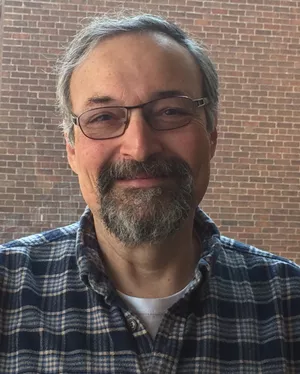
Nobel Prize-Winning Connection
Current U of T Mississauga Biology Chair Professor Joel Levine had an unanticipated setback early in his academic career when he suffered an allergic reaction to the rats he was working with in the lab. However that discovery set him on a new course of study of Drosophila melanogaster, or the fruit fly, which ultimately led to doing a postdoc at Brandeis University under the direction of Dr. Jeffrey C. Hall, who was recognized earlier this month with a Nobel Prize in Physiology or Medicine with colleagues Drs. Michael Rosbash and Michael Young for their work on circadian rhythms.
“Jeff had such an impact on me and my work that, to this day, lessons I learned in his lab have stayed with me,” says Levine.
“He was the consummate teacher, the ultimate fruit-fly geneticist, and one of the most dynamic thinkers. But he’s also incredibly down to earth and accessible. We worked hard in the Hall Lab but we also had fun, and I’ve tried to instill those qualities in my own lab.”
Levine says fruit flies are superb entities to study: they reproduce quickly and are easy to maintain, and they are a great resource for further studies into genetics and patterns of social behaviour.
According to the Levine Lab website "we have common genes and biochemical pathways that make up learning and biological clocks and contribute to neurodegenerative disorders," and up to "72% of known human disease genes can be found in the fly." In Levine's lab with the fruit fly as its subject they specifically study the ways in which biology influences the social choices humans make, and the patterns and quality of our relationships with others.
Levine is also quick to point to the fact that U of T Mississauga itself is a hub not only for this Nobel Prize-connected work but also significant, basic research involving fruit flies, such as the work being done by Vice-Principal, Research Professor Bryan Stewart and his study of the nervous system and the brain in the Department of Biology, as well as a thriving network of researchers investigating circadian rhythms and behavioural differences that spans across several departments. From the UTM Biology department he cites Canada Research Chair in Molecular Genetics of Biological Clocks Professor Mary Cheng along with Professors Ted Erclik for his stem cell work and Tim Westwood for his studies in gene expression, as well as Professors Melissa Holmes and Ashley Monks for their work in behavioural neurosciences in the Department of Psychology, and Professor David Samson in the Department of Anthropology for his studies on the evolution of primate sleep.
It is the fruit fly, though, that has been an enduring fascination for study for Levine since his early days completing a PhD at the University of Pennsylvania in 1993. From 2004-14 he held a Tier-II Canada Research Chair in Neurogenetics at UTM, and in 2015 was awarded a Tier-I Canada Research Chair in Mechanisms and Features of Social Behaviour, studying genes, group dynamics, and circadian rhythms all with the fruit flies at the centre, but with insights that can be applied to other several other species, including humans.
Levine was featured in 2015 in a profile, On the Fly, in which he stated that Dr. Hall was “one of his most significant mentors, along with the great saxophone player and composer John Coltrane.” Because, as a bit of a fun fact, circadian-rhythm work isn't the only rhythm work in which Levine is engaged: he is also a jazz musician in his off-hours and is celebrating his latest musical output, a jazz album that just dropped in September 2017 called The Whistleblower.
